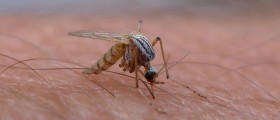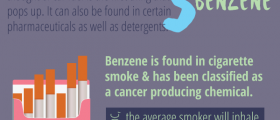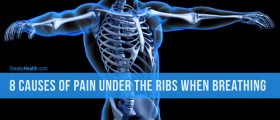
Hiccup is a contraction of diaphragm, a muscle that separates the abdominal cavity from the chest cavity. This contraction is frequent and can last several minutes and even longer. In small number of patients the contractions are so severe and they do not even stop. If this happens there is a great chance that a patient is suffering from a very serious medical condition.
Causes of Hiccups
The real cause of occasional hiccups has not been established yet. Still all people have at least once experienced this rather unpleasant condition. It can be connected with rapid drinking or swallowing of half-chewed food. Hiccups can also occur after consumption of alcohol drinks. Unexpected change of temperature may be additional cause of hiccups. And finally, occasional hiccups develop when the stomach is bloated. Occasional hiccups stop spontaneously and are no reason for worry.
On the other hand, hiccups can develop as a symptom of a variety of medical conditions. Prolonged hiccups that last more than two days are a real reason for worry and a patient should visit his/ her doctor as soon as possible.
Gastroesophageal reflux disease is only one medical condition that can be responsible for hiccups. Even acute and chronic inflammation of the stomach can lead to hiccups. The contractions of diaphragm can be additionally present in the obstruction of the small intestines.
In rare cases one of the symptoms of brain tumor can be hiccups. In these patients the removal of the tumor may be beneficial and eliminate the symptom. However, depending on the damage the patient might have to deal with hiccups even after the brain tumor has been removed. Similarly a large damage onto the brain can happen in case of a stroke. This means that patients who have suffered from a stroke can face a sequela in a form of hiccups. Every other damage of the brain and its structures can result in hiccups. This also includes multiple sclerosis, meningitis, encephalitis and head trauma.
Pneumonia is another disease that can be followed by hiccups. Hiccups can occur in case of inflammation of pericardium, a sac that surrounds the heart. Sometimes even heart attack especially the one that affects lower wall of the hearth that actually lies on the diaphragm may lead to hiccups.
In certain people the irritation of an eardrum may lead to hiccups.
Metabolic and hormonal diseases such as Addison's disease, goiter or increased level of sugar in blood are potential cause for hiccups. Even anorexia nervousness can be a trigger for hiccups.
Hiccups can result as a consequence of electrolyte imbalance. Malfunction of kidneys and chronic kidney failure lead to improper elimination of toxic substances from the body. Hiccups can occur even in these patients.
Additionally, infections of upper respiratory track can in some cases cause hiccups. And finally, certain medications including corticosteroids and benzodiazepines can have hiccups as one of potential side effects.

















Your thoughts on this
Loading...